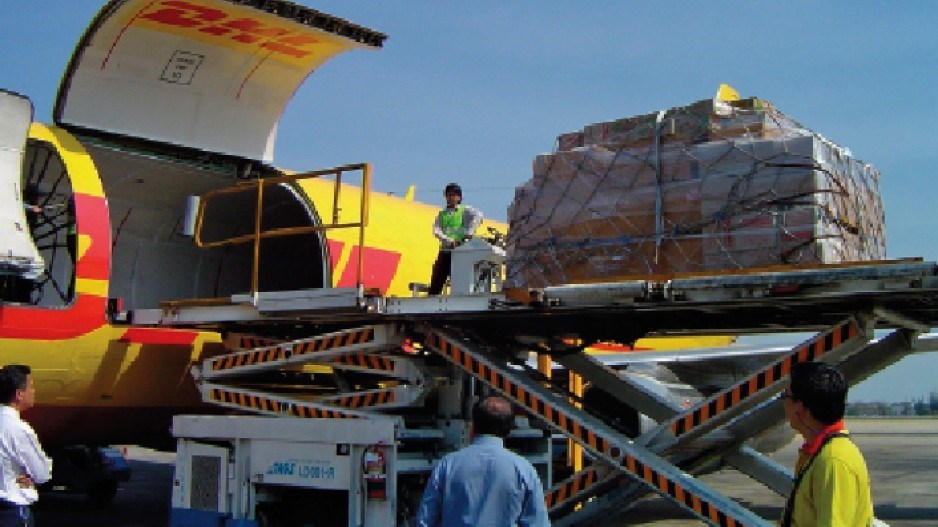With a B.C. hub of more than 100 employees in Richmond, Germany's international courier company DHL Express is helping to expand trade links between B.C. and China.
In a recent interview, DHL CEO Ken Allentold Business in Vancouver how the company broke into China and how that market has changed in the three decades DHL has been in business there.
Q&A
Q: When and how did DHL break into the Chinese market?
A: We've been in China since 1980. We have a joint venture in China with [state-owned logistics provider] Sinotrans. They're a great partner with a clear market lead. Since 1980, we built up a great infrastructure throughout the country. We have just recently opened our north Asia hub in Shanghai and from there we'll be connecting China and the rest of the world more closely with north Asia – South Korea, Japan, Taiwan. So we've got a long established business in Asia.
Q: Why did DHL opt for a Chinese partnership?
A: In the early days when China was opening, you needed a partner to open up [there] and, in fact, when FedExand UPS and even TNTopened in China, they came in through the Sinotrans route. I think a lot of them then decided to go on their own and stick up their own operations. We always thought doing something in partnership, especially in Asia, is the best way to go, so we're still in partnership with Sinotrans. It's a 50/50 joint venture.
Q: What have you learned about how to build a business in China?
A: When we first went in there we had a lot of expatriates who went in there to help set the business up and sort of worked with Sinotrans and the local customs' authorities to bring in best practice. What's happened in our business – and I think it's reflective of what's happening in China as a whole – is that that whole Chinese business from our perspective is [now] run by the Chinese. They're becoming more and more innovative. A lot of the ideas that we put into other parts of the world, even in terms of sales force management systems and things like that [are coming from China]. So I would say China is really becoming a lot more mature.
Q: What other business shifts have you seen in China since establishing DHL there?
A: China was always very famous for its manufacturing and its ability to provide cheap labour, to be the production factory for the world. But that innovation now is coming into their products; companies like Huaweiin the telecom sector are really developing their own markets.
From a DHL perspective, and interesting to Canada, there are a lot of smaller, private-entrepreneur-type businesses in China that are flourishing now and starting to look for export markets. Over the last 10 years, China has built up a massive middle class of people that are now starting to be consumers themselves. From a general export capability now, it's a good time for European, U.S. and Canadian companies to be looking to sell into China because now they're much more receptive to western goods. In fact, there's a big desire for that kind of activity.
Q: As a logistics provider in China, what changes have you seen in the flow of mail and goods to and from the country?
A: The biggest thing we've seen is lots and lots more packages every year. Things have been massively growing for us. Also, China has been changing the shape of the world. Up to the emergence of China, most trade routes were intra-region, hence NAFTA and the strength of trade between the U.S. and Canada. I think what we've seen now is, because of the power of Chinese manufacturing, more and more of the busiest trade lanes in the world are to and from China, and I think that's a fundamental change. In fact our busiest trade lane is now Italy-China; it's no longer Italy-Germany or Italy-Spain. Also, I think we used to be a [ratio of] three or four outbound [deliveries] to one inbound to China. Now it's about three outbound to two inbound. So there are more opportunities going into China, and a lot more demand for imports in that country as the middle class has increased.
Q: How have China's import and export regulations toward Canada changed?
A: I don't think the regulations have changed much, but I think that they've become much more fluid in that China is trying to promote export and import now. Some of the bureaucracy that used to be around is not as aggressive as it used to be. I think China's a much more open trading partner to deal with. So once you know what the requirements are, I don't think it's any different dealing with China than it is dealing with Germany or any other country around the world.




